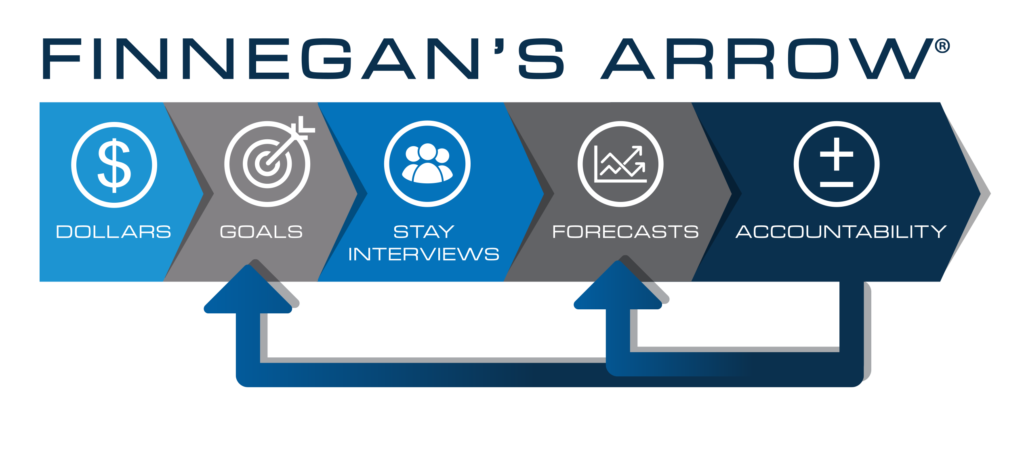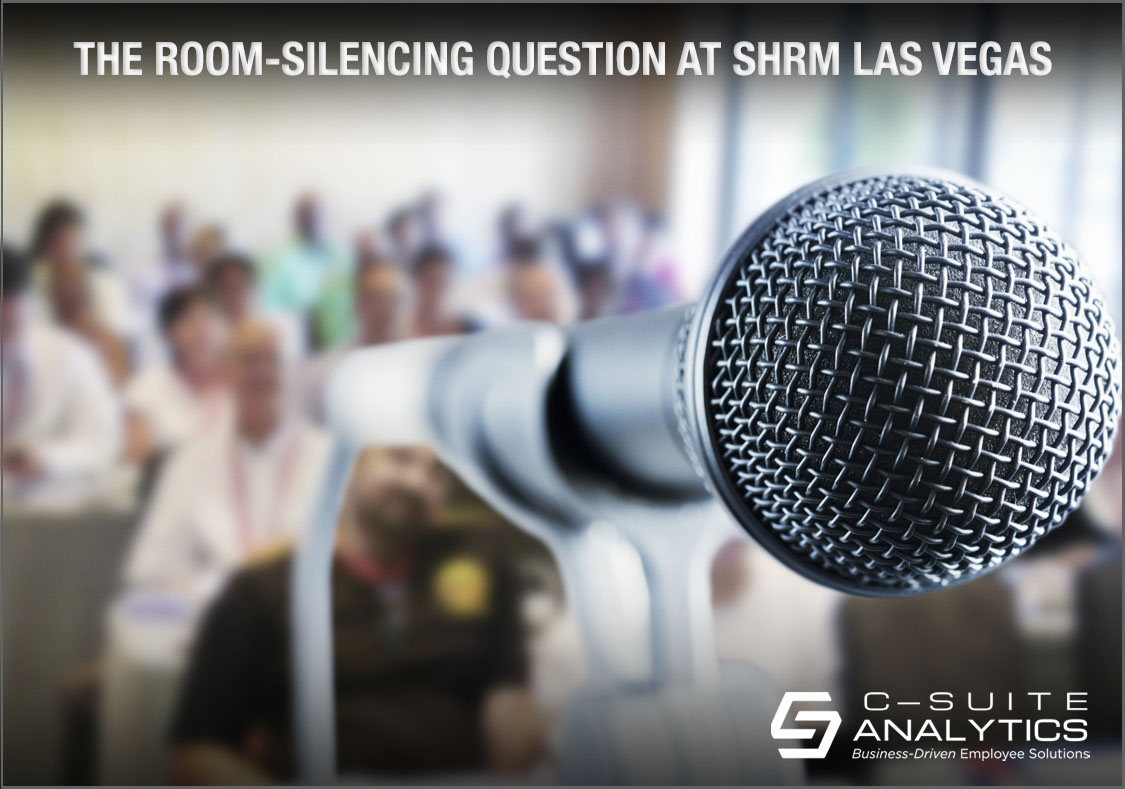At SHRM Talent Conference 2024 I asked the room this question: Who here has ever heard of one manager getting fired for a low employee engagement survey score? Please raise your hand if you can think of even just one. The only sound was the 400-plus attendees turning in their seats to see if anyone raised their hands. There were no hands up.
WSJ Says “Americans Don’t Care as Much About Work”

This is such as startling big-font statement from the normally conservative Wall Street Journal.[i] And the second sentence of the article’s title is “And it’s not just about Gen Z”…so the author is talking about all of us, you and me included. The pandemic has been the universal game-changer, he says, such that American’s work habits and work values changed in ways comparable to having experienced a war.
Job Survey Data Says…
These are his data points that jumped out the most:
- In 2017, 24% of respondents to a Pew survey said their job or occupation was very important to their identity. In 2021, just 17% did. Later surveys corroborate this finding.
- More workers are taking their full slate on vacation days, sick days, and other opportunities to skip work.
- Men worked 30 hours less last year than in 2019, and the drop was concentrated among upper-income college graduates.
The author points out that these upper-income college grads are likely now working from home, so gone is the never-said-out-loud competition to see who arrives first to the office and is last to leave. These former workaholics can instead easily respond to any extended-office-hour requests on their phones from restaurants, the gym, or wherever.
Work From Home and Layoffs Signal White Flag for Employee Retention
While the overwhelming number of CEOs don’t approve of their employees working from home, our long-continuing worker shortage gives employees the upper hand. As one frustrated CEO said in the article…
“If you have a person working in finance who’s not coming to the office, why wouldn’t you hire that same person in India or in the Philippines?”
How’s that for waving the white flag on employee retention and engagement?
Then consider the must-be-at-work jobs like those for blue-collar workers, restaurant workers, teachers, or those in healthcare who are consistently winning concessions on pay increases, scheduling, or even by striking and winning.
Some might say that layoffs forecast a future-soon economic downfall. Recent reports though say Microsoft, Alphabet, Meta, and Netflix employ roughly 50% more workers than before the pandemic…and Amazon’s workforce remains twice as big as it was in 2019[ii]…despite each of these company’s recent layoffs being in the news.
—–
Further Reading: Do Layoff Announcements Mean Hiring Gets Easier?
—–
Employees Have the Upper Hand…
…and they know it. And the strongest upper hands hang off the arms of your top-performers. And because good workers all over are in short supply, let’s include your middle-performers, too. Workers can call their own shots such that a full 68% of those who changed jobs in February moved to a new industry.[iii] Let’s chew on this for a moment, that a large majority of job-changers moved to new industries with likely no same-industry experience and maybe no proven skills for their new jobs, yet employers opened their arms to take them.
How desperate is that?
—–
Further Reading: Pay or Disrespect – What Drives High Performer Turnover?
—–
The Real Employee Retention Issue
Any head-above-water CEO would agree that retaining good performers is a better fix than posting and re-posting their jobs on Indeed…even that guy above who saw no difference between hiring an employee from home vs outsourcing his job to a foreign country and culture. Making the retention case is easy. The hard part is knowing how to retain. What should CEOs and their teams actually do?
My post-grad work with an industrial/organizational professor re-directed my career because the gap between real research and on-the-ground organizational practice was as wide as the Pacific Ocean. One way to consider this is that all jobs bring with them pre-established work processes, for example an accountant walks into work and knows how to be an accountant. Same with a plumber. But until now no one has known how to actually solve employee turnover because there have been no successful, research-based processes to do so.
There are wrong processes though…like improving onboarding, raising pay, delivering new benefits. These are all good things, but they have no proven impact on consistently improving employee retention.
And The Employee Retention Solution Winner Is…
All meaningful employee retention solutions must be driven through first-line leaders because the number one reason employees stay or leave is how much they trust their boss. No one ever leaves for better benefits and very few leave a job they like for more money. And onboarding has little impact a week later if you assign that employee to a jerk boss. This does not mean everyone who quits didn’t trust their boss because employees bail for many reasons…but instead that solving turnover requires making first-line leaders your bulls-eye for solutions.
This was true twenty years ago, is true today, and will be true twenty years into the future.
Those who are familiar with our work can anticipate what I write next:
- Engagement per Gallup has been completely stuck for 17 years.
- That only 33% of our employees at best are giving their all
- The culprit here is engagement and exit surveys, because we believe data identifies easy solutions…but data only provides data, not solutions.
Imagine cutting your turnover by 43%, 45%, or 67%…and the impact this would have on reducing open positions, improving employee engagement, productivity, profitability, and obviously reducing employee turnover. Our most recent three clients achieved these turnover reductions by applying the principles of Finnegan’s Arrow in their organizations which include: Dollars, Goals, Stay Interviews, Forecast and Accountability.

So what’s the best response to “Americans don’t care as much about work”? Take these research-proven actions to retain the ones who do.
—-
Want to improve your retention but not sure where to start or how to convince your executives of the importance? Write to me DFinnegan@C-SuiteAnalytics.com or connect with me to schedule a FREE one-on-one consultation.
[i] https://www.wsj.com/lifestyle/careers/americans-attitude-work-data-0c2e487c
[ii] As quoted in The Week, 3.15.24
[iii] Revelio Labs The Digest, 3.13.24



